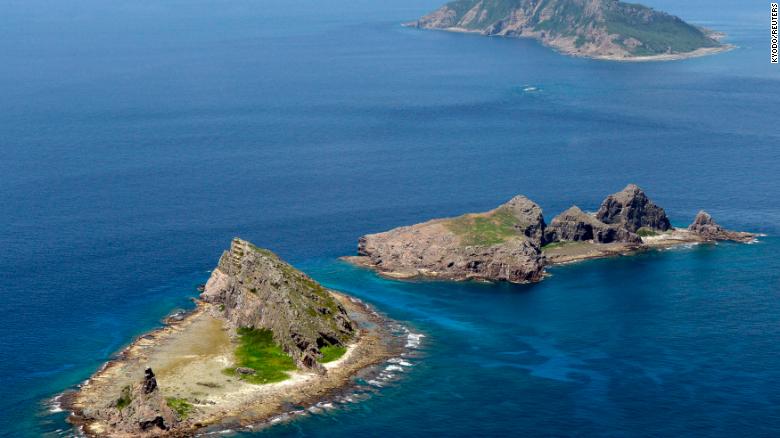Brad Lendon

Seoul, South Korea (CNN)For all the speculation of quick military action by China to achieve its foreign policy goals, Beijing's track record has been more akin to peeling an onion, slowly and deliberately pulling back layers to reach a goal at the center.
Think of how Beijing built up islands in the South China Sea and then fortified them, eventually establishing what the former head of the US Pacific Command in 2018 called a "Great Wall of SAMs," -- surface-to-air missiles -- on islands that years earlier Chinese leader Xi Jinping had pledged not to militarize.
"Relevant construction activities that China is undertaking in the Nansha (Spratly) islands do not target or impact any country, and China does not intend to pursue militarization," Xi told former US President Barack Obama at the White House in 2015.
Those militarized islands are also claimed in part by the Philippines, Vietnam, and Taiwan, but none of those places are likely to see their claims realized. The islands -- with names like Fiery Cross Reef and Mischief Reef -- are essentially People's Liberation Army bases.

Japan expands defense of its southern front line to counter China 05:44
Now Beijing may be slowly peeling back the onion in another disputed island chain, the rocky, uninhabited Senkaku Islands in the East China Sea, administered by Japan and known as the Diaoyus in China.
Chinese Coast Guard and even naval ships have been spending record amounts of time in the waters around the Senkakus this year, according to the Japanese Defense Ministry.
Earlier this week, a People's Liberation Army Navy (PLAN) frigate entered the waters in the contiguous zone around the Senkakus for only the fourth time since 2016, Japanese officials said.
A contiguous zone covers waters between islands that do not fall into the 12-nautical-mile limit of a nation's territorial waters. Foreign warships are allowed into those waters -- so the Chinese navy hasn't broken any international agreements -- and China's Foreign Ministry told CNN earlier this year that the Chinese Coast Guard's patrols in the waters surrounding the islands were "an appropriate exercise of China's sovereign right."
China attempted to demonstrate that right on Monday when it warned a frigate from the Russian Navy to leave the very same waters, a Japanese official said.
"Beijing's goal is to establish and demonstrate effective control over the Senkaku Islands" and it needs symbols of that control, said James Brown, an associate professor of political science at Temple University in Tokyo.
"Sending its frigate to monitor the activity of the Russian ship could be interpreted as one such symbol of control," Brown said.
The record amounts of time Chinese vessels are spending near the Senkakus make another statement, Brown said.
To present an international legal claim to the islands over Japan, "China simply needs to establish a greater and more enduring presence of its ships in the waters around the islands," he said.
No comments:
Post a Comment